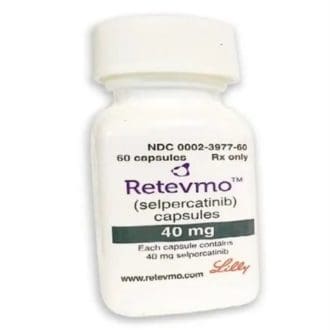Polivy Polatuzumab Vedotin 30, 140 mg dosage price in india online in india and Yourmedikart
Pronunciation: Poh-LIH-vee
Generic name: Polatuzumab Vedotin
Dosage form: powder for Intravenous Infusion
Drug class: Miscellaneous Antineoplastics
Polivy is a brand-name prescription medication. It’s FDA-approved to treat diffuse large B-cell lymphoma (DLBCL) in adults in certain situations. DLBCL is a type of cancer that affects white blood cells called B-cell lymphocytes.
Specifically, Polivy Polatuzumab Vedotin 30 mg /140 mg dosage price can be used when the DLBCL has been treated with at least two other therapies in the past. Additionally, the DLBCL must be either refractory (did not improve after past treatments) or relapsed (returned after past treatments).
For this purpose, Polivy 140 mg is used in combination with two other cancer treatments: Bendamustine (Belrapzo, Bendeka, Treanda) and rituximab (Rituxan, Rituxan Hycela).
What is Polivy?
Polivy (Polatuzumab Vedotin-piiq) is a targeted treatment that may be used to treat diffuse large B-cell lymphoma (DLBCL) in combination with other medications. It is given as an infusion into a vein by a healthcare professional and is specifically approved for adults with:
- Previously untreated DLBCL, not otherwise specified (NOS) or high-grade B-cell lymphoma (HGBL) who have an International Prognostic Index score of 2 or greater.
- Relapsed or refractory DLBCL, NOS, after at least two prior treatments.
Polivy is a CD79b-directed antibody-drug conjugate that consists of 3 components:
- A monoclonal antibody that binds specifically to the CD79b protein (this protein is expressed specifically in the majority of B-cells)
- an anti-cancer agent, MMAE
- a linker that attaches the anti-cancer agent to the monoclonal antibody.
Polivy Side Effects
- Polivy can cause mild or serious side effects. The following lists contain some of the key side effects that may occur while receiving Polivy. These lists do not include all possible side effects.
- For more information about the possible side effects of Polivy, talk with your doctor or pharmacist. They can give you tips on how to manage any side effects that may be concerning or bothersome.
- Note: The Food and Drug Administration (FDA) tracks side effects of drugs it has approved. If you would like to notify the FDA about a side effect you’ve had with Polivy, you can do so through MedWatch.
Polivy for diffuse large B-cell lymphoma
- The Food and Drug Administration (FDA) approves prescription drugs such as Polivy Polatuzumab 140 mg price to treat certain conditions. Polivy may also be used off-label for other conditions. Off-label drug use is when an FDA-approved drug is prescribed for a purpose other than what it’s approved for.
- Polivy 140 mg is FDA-approved to treat diffuse large B-cell lymphoma (DLBCL)* in adults in certain situations.
- Specifically, Polivy may be used when the DLBCL has been treated with at least two other therapies in the past. Additionally, the DLBCL must be either refractory (did not improve after past treatments) or relapsed (returned after past treatments).
- For this purpose, Polivy Polatuzumab Vedotin 30 mg / 140 mg dosage price is used in combination with two other cancer treatments: Bendamustine (Belrapzo, Bendeka, Treanda) and rituximab (Rituxan, Rituxan Hycela). For more information, see the “Polivy use with other drugs” section below.
Polatuzumab Vedotin
- Find Polatuzumab details. Check Polatizumab. Learn about Polatuzamab and Polatuzimab. Explore Polituzumab. Discover Polatuzumab brand name. Check Polivy 140 mg fiyat. Find Polivy side effects.
- Learn about Polivy 30 mg. Understand Polivy storage. Check Polivy price and Polivy cost. Find Polatuzumab Vedotin price in India. Learn about Polatuzuma and Polatuzmab.
- Discover Rituxan generic name. Check Polivy 30mg inj. Learn about Polatuzumab Vedotin brand name. Discover Polutuzumab. Learn about Polatuzumab dosing.
Warnings
- May cause peripheral neuropathy (damage to the nerves outside of your brain and spinal cord). Report any numbness or tingling of the hands or feet or any muscle weakness to your healthcare provider.
- Polivy Polatuzumab Vedotin 30 mg 140 mg dosage price may also cause bone marrow suppression. Your healthcare provider will conduct regular blood tests to monitor your blood counts and manage them accordingly. Report signs or symptoms of bleeding or infection immediately.
- Explore Polivy (Polatuzumab Vedotin) for lymphoma care. Know the latest Polivy 30 mg injection price, Polivy injection price in India, and Polivy 140 mg price. Learn about Polatuzumab Vedotin, including Polatuzumab dosing, Polatuzumab cost in India, and Polatuzumab vedotin price.
- Compare Polivy 30mg inj price, Polatuzumab 30 mg cost in India, Polatuzumab 90 mg cost in India, and Polatuzumab 140 mg. Understand Polatuzumab brand name, Polatuzumab-vedotin side effects, and Polivy storage. Shop Polivy 30mg Inj online and compare with alternatives like Rituxan generic name and Venclyxto shopping cart options.
Before Taking
Tell your doctor if you have ever had:
- Liver disease or
- Nerve problems (neuropathy) in your hands and feet
- Are pregnant or intend to become pregnant.
- Are breastfeeding.
Pregnancy and breastfeeding
- Polivy Polatuzumab Vedotin 30 mg dosage can harm an unborn baby or cause birth defects if the mother or the father is using Polivy Polatuzumab Vedotin 30 mg.
- If you are a woman, you may need to have a negative pregnancy test before starting this treatment. Do not use Polivy 140 mg if you are pregnant. Use effective birth control to prevent pregnancy while you are using this medicine and for at least 3 months after your last dose.
- If you are a man, use effective birth control if your sex partner can get pregnant. Keep using birth control for at least 5 months after your last dose. This medicine may also affect fertility (ability to have children) in men. However, it is important to use birth control to prevent pregnancy because Polivy can harm an unborn baby.
- Tell your doctor right away if a pregnancy inadvertently occurs while either the mother or the father is using Polivy.
- Do not breastfeed while using this medicine, and for at least 2 months after your last dose.
What other drugs will affect Polivy?
- Sometimes it is not safe to use certain medications at the same time. Some drugs can affect your blood levels of other drugs you take, which may increase side effects or make the medications less effective. Interactions include:
-
- Strong CYP3A inhibitors such as grapefruit juice, erythromycin, ketoconazole, clarithromycin, and verapamil
- Strong CYP3A inducers such as glucocorticoids, rifampin, carbamazepine, phenobarbital, and phenytoin.
- Polivy can harm your liver, especially if you also use certain medicines for infections, tuberculosis, depression, birth control, hormone replacement, high cholesterol, heart problems, high blood pressure, seizures, pain, or arthritis (including Tylenol, Advil, Motrin, or Aleve).
- Other drugs may affect Polivy 30 mg, including prescription and over-the-counter medicines, vitamins, and herbal products. Tell your doctor about all your current medicines and any medicine you start or stop using.
Ingredients
- Active: Polatuzumab Vedotin-piiq
- Inactive: polysorbate-20, sodium hydroxide, succinic acid, and sucrose.
- After reconstitution, the final concentration is 20 mg/mL with a pH of approximately 5.3.
- Available as 30mg and 140mg vials.
- Polivy vial stoppers are not made with natural rubber latex.
What are the side effects of Polivy?
- Get emergency medical help if you have signs of an allergic reaction: hives; difficulty breathing; swelling of your face, lips, tongue, or throat.
- Polivy 30 mg dosage affects your immune system. You may get infections more easily, even serious or fatal infections. Your blood will need to test often, and further doses may be delayed based on the results. Call your doctor if you have a fever, chills, cough, mouth sores, unusual bleeding or bruising, burning when you urinate, or problems with speech, thought, or muscle movement.
- Polivy 30 mg may cause a serious brain infection that can lead to disability or death. Call your doctor right away if you have problems with speech, thought, vision, or muscle movement. These symptoms may start gradually and get worse quickly.
- Some side effects may occur during the injection. Tell your caregiver if you feel feverish, chilled, itchy, light-headed, or have wheezing, chest tightness, or trouble breathing within 24 hours after the injection.
Polivy may cause serious side effects. Call your doctor at once if you have:
- Easy bruising or bleeding (nosebleeds, bleeding gums)
- Muscle weakness
- Cough with mucus, chest pain, feeling short of breath
- Pale skin, cold hands, and feet, feeling light-headed.
- Nerve problems–numbness, tingling, pain, burning sensation in your hands or feet, weakness, trouble walking.
- Signs of infection–fever, chills, night sweats, cough, mouth sores, swollen glands, shallow breathing, pain or burning when you urinate, weight loss.
- Signs of shingles–flu-like symptoms, tingly or painful blistering rash on one side of your body
- Liver problems–loss of appetite, stomach pain (upper right side), dark urine, jaundice (yellowing of the skin or eyes) or
- Signs of tumor cell breakdown–confusion, weakness, muscle cramps, nausea, vomiting, fast or slow heart rate, decreased urination, tingling in your hands and feet or around your mouth.
- Fever, cough, tiredness, or other signs of infection
Common side effects affecting 20% or more people taking Polivy include:
- Diarrhea
- Decreased appetite.
- Fatigue
- Fever
- Laboratory abnormalities such as neutropenia, thrombocytopenia, or anemia
- Nerve problems
- Pneumonia.
Storage
- Store refrigerated at 2°C to 8°C (36°F to 46°F) in the original carton to protect from light.
- Do not freeze or shake and do not use beyond the expiration date shown on the carton.
- May be store at room temperature (9°C to 25°C [47°F to 77°F]) up to a maximum of 8 hours before dilution.
- Polivy Polatuzumab Vedotin 30 mg /140 mg dosage price is a hazardous drug and appropriate Handling, and disposal procedures should be followed.
Polivy Detail
Discover comprehensive information about Polivy (Polatuzumab Vedotin), including its pricing, dosing, and related details.
- Learn about the Polatuzumab 30 mg cost in India and the overall Polatuzumab cost in India. Compare the Polivy 140 mg price and Polivy 30 mg price with the Polatuzumab Vedotin price in India.
- Explore the Polatuzumab brand name and the pricing for Polivy injection price. Learn more about Polatuzumab and the related Polatuzumab Vedotin brand name.
- Detailed information on the Polivy 30 mg and general Polivy is also available, including the correct Polivy pronunciation and the Polatuzumab Vedotin price.
- For generic information, check the Polivy generic name and learn about the proper Polatuzumab dosing. Explore the Polivy 140 and get details on the correct Polatuzumab dose and Polatuzumab Vedotin.
- Information on the Polivy vial and the pricing like the Polivy 140 mg fiyat is also available. Learn about Inj Polatuzumab and related products like the Antipyretic generic name and the Gazyva price.
- For more details, explore the Polivy price and learn about related terms like the Kadcyla pronunciation and the Polivy injection.
Warnings
- May cause peripheral neuropathy (damage to the nerves outside of your brain and spinal cord). Report any numbness or tingling of the hands or feet or any muscle weakness to your healthcare provider.
- Polivy 140 mg dosage may also cause bone marrow suppression. Your healthcare provider will conduct regular blood tests to monitor your blood counts and manage them accordingly. Report signs or symptoms of bleeding or infection immediately.
- Infusion-related reactions are possible, but the risk can decrease with premedication with an antihistamine and an antipyretic and monitoring closely during an infusion. Contact your healthcare provider if you experience signs and symptoms of infusion reactions, including fever, chills, rash, or breathing problems, within 24 hours of an infusion.
- Polivy may also increase your risk of an infection, including serious and unusual bacterial, fungal, or viral infections. Your healthcare provider will monitor you closely for these. Contact your healthcare provider if you develop a fever of 38°C (100.4°F) or greater or other signs of an infection such as chills, cough, or pain on urination.
- There is a risk of Progressive Multifocal Leukoencephalopathy (PML) (a brain infection cause by a virus) associate with Polivy. Seek immediate medical attention for new or changes in neurological symptoms such as confusion, dizziness, or loss of balance; difficulty talking or walking; or vision changes.
- Tumor Lysis Syndrome is a life-threatening emergency caused by the release of the contents of tumor cells into the bloodstream. Seek immediate medical attention for symptoms of tumor lysis syndrome such as nausea, vomiting, diarrhea, and lethargy.






